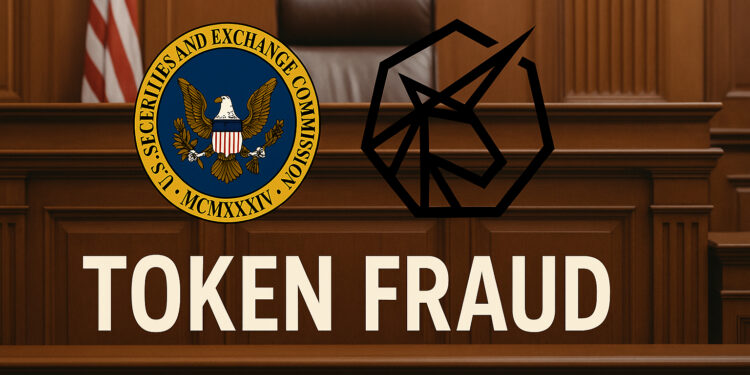- The SEC has sued Unicoin and four executives, alleging they misled over 5,000 investors and raised more than USD 100 million through deceptive crypto-linked certificates.
- Regulators claim Unicoin falsely promoted its token as being backed by a real estate portfolio that either didn’t exist or was massively overvalued, and misrepresented the offering’s regulatory status.
- Despite receiving a Wells notice in December, Unicoin declined to settle with the SEC and plans to fight the charges in court, calling the agency’s conditions “unacceptable”.
The Securities and Exchange Commission (SEC) has launched legal action against Unicoin, a crypto investment outfit, and four of its senior figures, accusing them of misleading thousands of investors while raising over US$100M (AU$155M) through what regulators describe as a deceptive sale of crypto-linked certificates.
In a complaint filed in the Manhattan federal court on May 20, the US securities regulator alleged that Unicoin’s leadership, CEO Alex Konanykhin, board member Silvina Moschini, former investment officer Alex Dominguez, as well as general counsel Richard Devlin, misrepresented nearly every core aspect of their offering, from the firm’s financial condition to the backing of its promised token.
Related: Aussie Judge Rules Bitcoin Is Cash, Puts ATO’s Crypto Taxation on Notice
The SEC says that since 2022, Unicoin promoted rights certificates tied to a future token, telling investors the token would be backed by a diversified real estate portfolio. That portfolio, the SEC now alleges, either didn’t exist or was valued at a fraction of what was claimed.
Fake News
Unicoin reportedly advertised sales of US$3B (AU$4.67B) worth of rights, but filings show the actual number was just over US$100M (AU$155M). Additionally, it sounds a lot like OneCoin, and we all know how that ended up.
The SEC also said the company misled investors into believing the products were registered with regulators when in reality, well, they weren’t.
The firm has not publicly responded to the suit, but according to earlier reporting from journalist Eleanor Terrett, the company was issued a Wells notice in December and rejected an invitation to negotiate a settlement with the agency.
Konanykhin reportedly told Terrett that some of the SEC’s conditions were “unacceptable” and that the company planned to defend itself in court.
Related: Tax and Legal Experts Urge Caution Despite Court’s Bitcoin-as-Cash Ruling
Credit: Source link






















